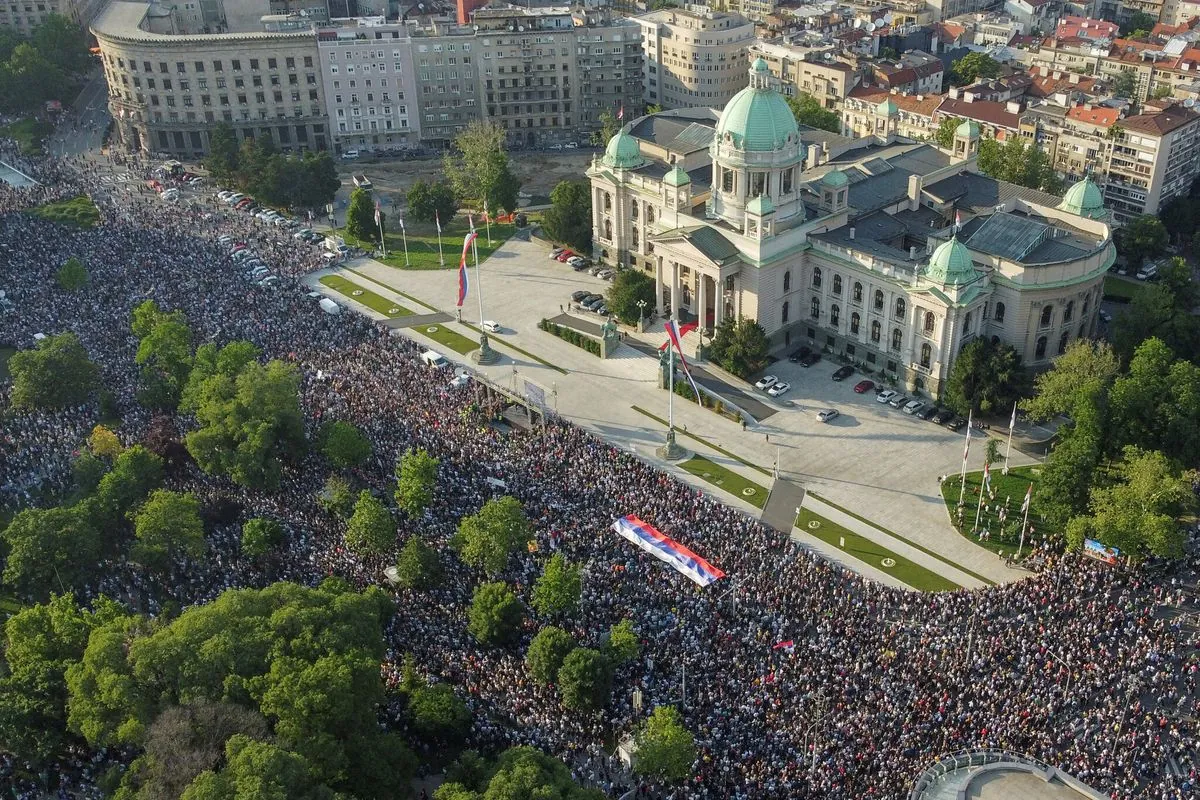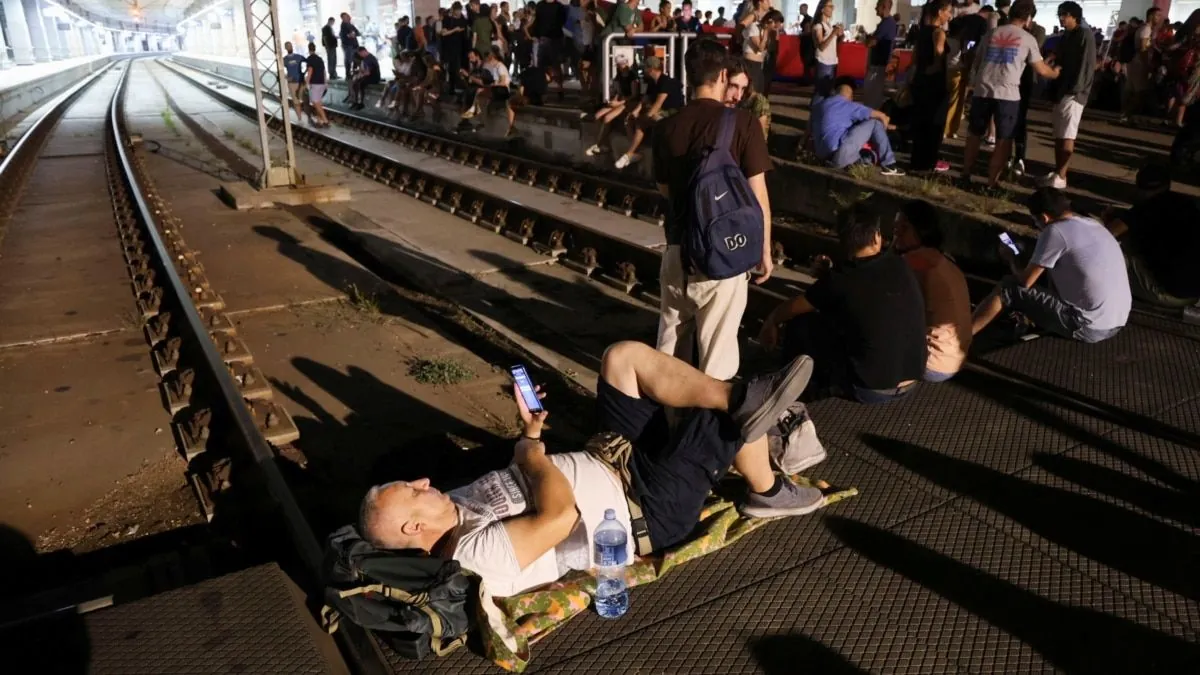Mass Protests Erupt in Belgrade Over Controversial Lithium Mining Project
Tens of thousands rally in Serbia's capital against a proposed lithium mine, leading to traffic disruptions. President Vučić accuses protesters of Western-backed "hybrid" warfare, offering a referendum on the contentious issue.

In a significant display of public dissent, tens of thousands of citizens gathered in Belgrade, Serbia's capital, to protest against a proposed lithium mining project. The demonstration, which took place on August 10, 2024, highlighted the ongoing tension between economic development and environmental preservation in the Balkan nation.
Aleksandar Vučić, Serbia's president, responded to the protests by accusing demonstrators of participating in a Western-backed "hybrid" warfare campaign against his government. He vowed to take legal action against those who blocked railway and road traffic during the demonstration.
The protest, one of the largest in recent years, saw participants voicing their opposition to lithium mining in Serbia. Despite government warnings of an alleged plot to unseat the populist president, citizens turned out in force to express their concerns.

Following the main rally, some protesters obstructed tracks at two railway stations and briefly halted traffic on a major highway. In the early hours of August 11, riot police intervened, using shields to remove demonstrators from the railway stations.
Interior Minister Ivica Dacic reported that 14 individuals were brought in for questioning, with efforts underway to identify all those involved for potential charges.
Vučić characterized the highway blockade as "terror of the minority over the majority," suggesting it was part of a broader strategy to destabilize the government. He claimed to have detailed knowledge of the situation, emphasizing the government's restrained approach in maintaining order.
The president had previously stated that Russian intelligence services had warned him of planned "mass unrest and a coup" orchestrated by unspecified Western powers. Government officials and state-controlled media have drawn parallels between the Belgrade protest and the Maidan uprising in Ukraine, which led to the ousting of pro-Russia President Viktor Yanukovych in 2014.
Serbia, a landlocked country in Southeastern Europe, boasts one of the largest lithium reserves on the continent. The Jadar Valley, known for its unique mineral jadarite, has been at the center of the mining controversy. Lithium, the lightest metal and least dense solid element, is crucial for electric vehicle batteries and renewable energy storage, making it a valuable resource in the global push for green technology.
The recent protests follow a history of environmental activism in Serbia. In 2022, large demonstrations led to the scrapping of a previous lithium mining plan. However, the project was revived in July 2024, bolstered by a tentative agreement on "critical raw materials" signed between Serbia and the European Union.
This development highlights Serbia's complex geopolitical position. While formally seeking EU membership since 2009, the country maintains close ties with both Russia and China. The EU memorandum on lithium mining aims to bring Serbia closer to the bloc and reduce Europe's dependence on China for lithium batteries and electric cars.
Critics argue that the mine would cause irreparable damage to the Jadar valley's ecosystem, including its vital underground water reserves and agricultural land. The government, however, insists that the project represents an opportunity for economic growth.
In response to the protests, Vučić announced a two-year pause on lithium mining to allow for a thorough investigation of potential risks. He also proposed a referendum on the issue, though environmental activists remain skeptical, citing concerns about the fairness of such a vote.
"There will be no lithium mining in the next two years while all the risks are being investigated."
As Serbia continues to balance its aspirations for EU membership with its ties to Russia and China, the lithium mining controversy underscores the challenges of reconciling economic development with environmental protection. The coming months will likely see continued debate and potentially more protests as the nation grapples with this contentious issue.


































